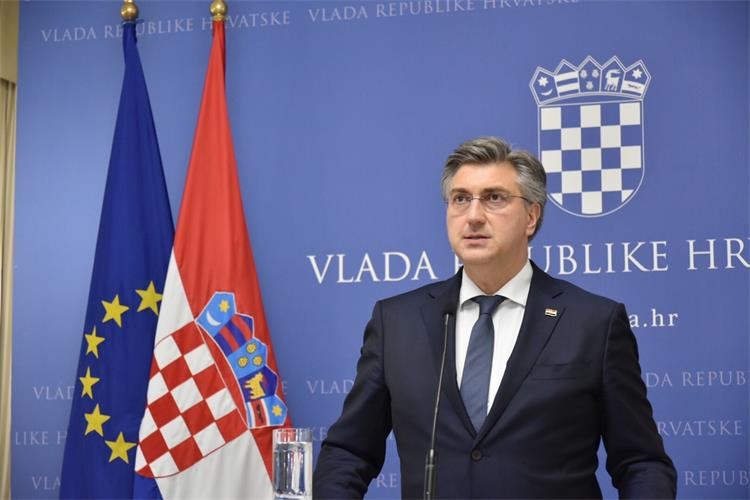"The main reason that we as the largest party in the ruling coalition and the parliamentary majority proposed the dissolution of the Croatian parliament with our partners, and they all supported it and with a convincing majority today voted on it, is the following: over the past few months Croatia was faced with two huge challenges, one was the fight against the coronavirus pandemic, epidemic in Croatia, and the other was the fight for jobs and economic recovery which this government conducted in parallel," Plenkovic told a press conference after the ninth Croatian parliament was officially dissolved.
Both challenges were exceptionally demanding and required maximum effort from all of us, he added.
He underscored that thanks to the timely measures and responsible behaviour by all citizens who showed an exceptionally high level of personal and social responsibility, Croatia minimised the disease to the lowest possible level, slowed down its spread and for days now has had single-digit numbers of new cases.
"Comparatively looking, that situation is very good. In that way, we showed that the state is functioning, that our health system is resilient and I can claim that in this first phase of the battle against COVID-19 we were exceptionally good and faced its challenges with a high quality," said Plenkovic.
No one knows what will happen in the autumn or after that
Seeing that Croatia is in an election year and that no one can with certainty know or presume what will happen during the autumn or after that, during the winter next year, the government, he stressed, considers that now is the right time for Croatian citizens to be given the opportunity to go to the polls to elect a new parliament.
"We are in an election year. The last election was on 11 September (2016), as such, any time for the election whenever the President chooses within the constitutional time-frame that he has, will be a regular election," he said.
"It is better to hold the election in this situation when we know that the epidemic has practically calmed down to its least possible variable than that we should by chance be in the situation of some new wave of the epidemic - which I hope will not occur - would be even more significant. Then we would be in a situation that we would have to adopt important and essential decisions for Croatian society but would not be certain that we can organise a normal election in conditions where everyone has an equal chance," concluded Plenkovic.
Text: Hina

